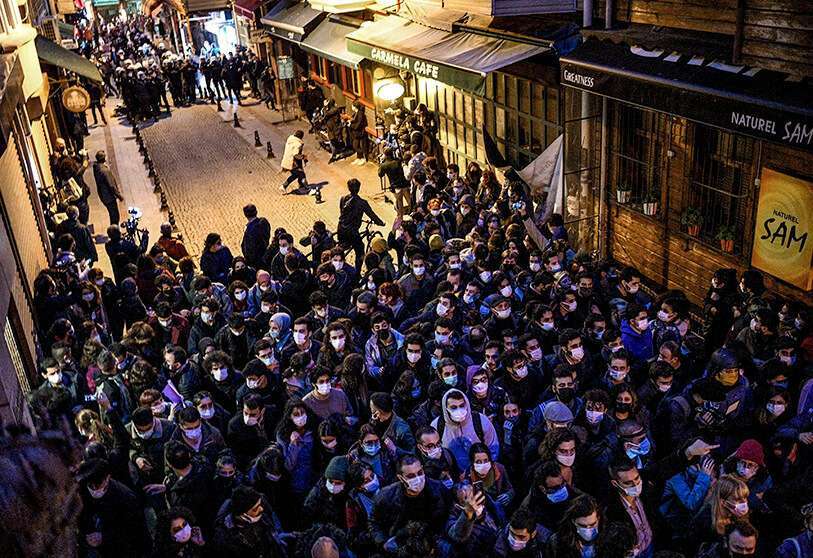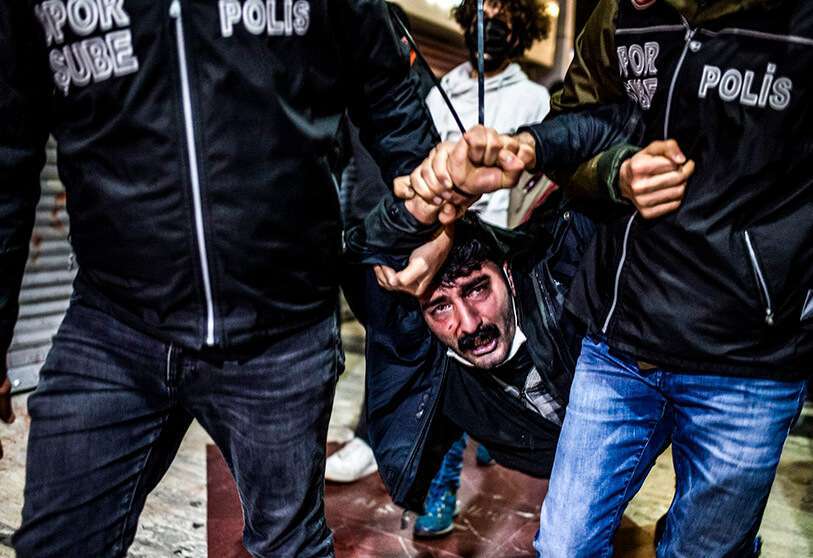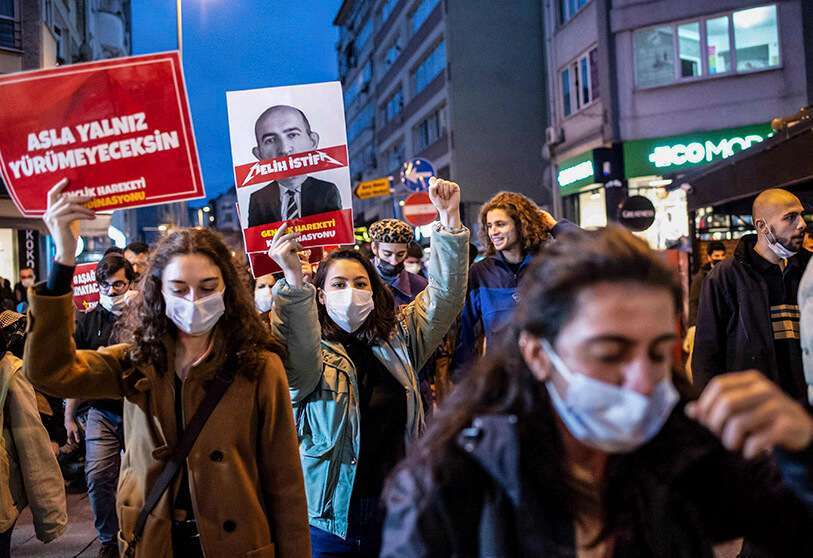Erdogan intensifies crackdown on opposition figures

University protests in Turkey have been dragging on since 4 January, when students at Istanbul's prestigious Bosphorus University staged demonstrations against the new rector, Melih Bulut, who has been accused of links to President Recep Tayyip Erdogan. The university students demanded his resignation and denounced the disintegration of democratic norms in the country.
More than 600 people have been arrested since the outbreak of the protests, according to the Turkish authorities. Most have been released and others placed under house arrest. However, the most significant case was the imprisonment of four people now awaiting trial for the protests in the Kadikoy district of Istanbul. The four protesters are charged with various offences, including damage to public property and terrorist propaganda.
The government has dismissed the content of the protests as politically motivated. Senior officials even maintain that they are being led by "terrorist groups". Turkish Interior Minister Suleyman Soylu referred to the protesters as "LGTBI deviants", while the president clarified that "such a thing [the LGTBI community] does not exist", and described the students as "terrorists".

Erdogan has the right to appoint university rectors from the presidency, however, students demand the right to choose the rector through a democratic process. The president assured that he would not allow new mass protests against the government, similar to those that broke out in 2013. The UN Human Rights Office urged an end to the excessive use of force by the police and has condemned "homophobic and transphobic comments made by the authorities".
Meanwhile, human rights lawyer Eren Keskin has been sentenced by the Turkish authorities to six years in prison for membership of a terrorist organisation. The co-president of the Human Rights Association of Turkey was not the only one, four other members of the daily Özgür Gündem, which was closed by court order in August 2016, have been sentenced to prison on "terrorism" charges. For the time being, they are free pending the outcome of their appeals.

The Kurds are also under constant harassment both in northern Iraq and inside the country. The Turkish army last Sunday denounced the execution of 13 Turkish hostages by the Kurdistan Workers' Party (PKK) in a camp in northern Iraq, 30 km from the Turkish border. The victims were policemen, civilians, soldiers and members of the secret services kidnapped in Turkey and Iraq by the group five years ago, according to the PKK itself.
The Kurdistan Workers' Party denounced an offensive against the camp, first by land, then by a bombardment that lasted three days. This attack is said to have killed the prisoners. The Turkish version, however, claims that it was the hostage-takers themselves who killed the hostages.
In the end, Turkish forces took control of the camp. Turkish Defence Minister Hulusi Akar said that 12 of the 13 dead were shot in the head, while the last one had a bullet in the shoulder "and was subsequently martyred". Akar added that two PKK members detained by Turkish forces explained that they had all been executed shortly before the start of the Turkish military operation.

However, this latest move has intensified the confrontation between Turkey and the PKK, which is considered by Ankara and the European Union as a terrorist organisation. The peace process signed in 2015 collapsed, and since then the Turkish government has assured that it would not return to dialogue with the group.
The Turkish Public Prosecutor's Office has opened investigations against two pro-Kurdish MPs and dozens of users who posted criticisms on social media on the issue. In addition, the Turkish Interior Ministry said on Monday it had detained 718 people across the country in a series of coordinated raids, including the heads of the Peoples' Democratic Party (HDP).
This is Turkey's second-largest opposition party, which denies all formal links to the PKK. However, it also questions the Turkish account of the 13 deaths. President Erdogan's far-right allies have been demanding for months that the party be outlawed, although thousands of its members are currently in prison.
The United States sought to defuse the diplomatic row with NATO ally Turkey by asserting that it accepts Ankara's claim that the 13 Turks in Iraq were executed as "terrorists". Erdogan lashed out at the US State Department's initial hesitation to blame the PKK for the deaths. While both sides consider the PKK a terrorist organisation, the US backs a Kurdish militia in neighbouring Syria in the conflict against President Bashar al-Assad.

The NCTV, the Dutch counter-terrorism agency, has reported in an internal investigation on the vulnerability of Dutch society to the Salafist threat consciously promoted by the Turkish president. According to the agency, among Dutch citizens of Turkish descent there are associations closely linked to Ankara.
The memorandum establishes a possible link between Erdogan's "anti-Western rhetoric" and the terrorist attack on a tram in Utrecht in 2019 in which four people were killed. A day before the attack, the Turkish president had condemned the terrorist attack on a mosque in New Zealand. Erdogan placed the events in the context of a "war between Muslims and Christians", the document itself states.
The report is not yet complete, i.e. it has not yet been endorsed by the Dutch government. The security services AIVD and MIVD, as well as the ministries of Foreign Affairs and Social Affairs and Employment have to give their opinion on it. Subsequently, it is the NCTV that decides whether the draft law still needs to be amended and published or whether it remains confidential.









